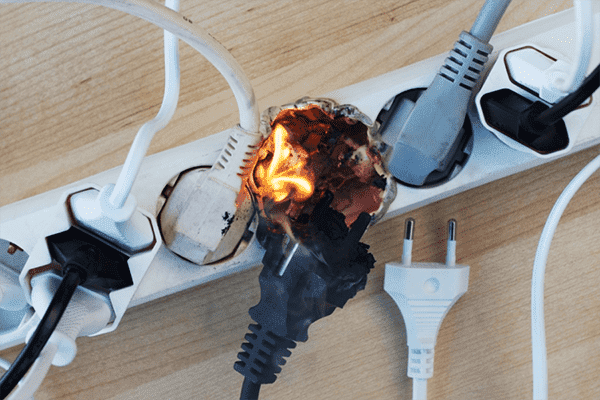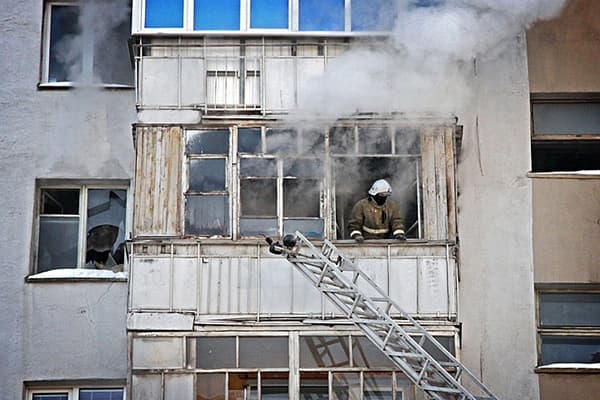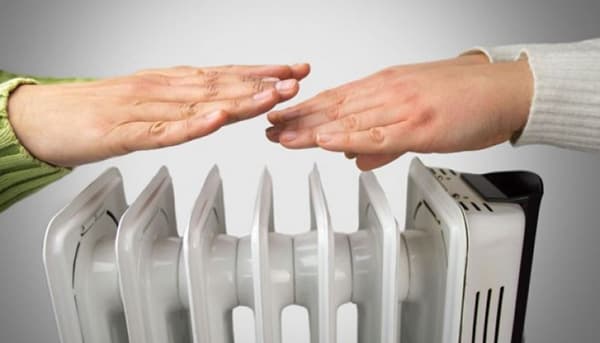Why shouldn’t electrical appliances be left unattended?
Many regulations regarding the use of electricity prohibit leaving electrical appliances unattended during operation. However, in the instructions for modern televisions, computers and other complex devices, you can find instructions that frequent shutdowns negatively affect the durability of the device. Let's figure out in what cases the ban can be ignored, and when it is necessary to turn off the power without fail.

Why should you not leave devices unattended?
Electric current passing through metal conductors can have several types of effects on the environment. In residential buildings, the thermal effect of electricity is of greatest importance - the ability to cause heating of the conductor through which current flows. If the metal heats up above the ignition temperature of surrounding materials, it will cause a fire.
A device designed with this action in mind has certain protection against overheating and spontaneous combustion. To cool heating parts, thickened conductors, radiator fins, cooling fans, etc. are used.
However, there are several reasons why overheat protection may not be effective:
- Use of thin conductors, poor-quality soldering, lack of heat-dissipating elements. Such shortcomings are typical for low-quality, cheap equipment from “no-name” manufacturers.
- Decrease in the quality of electrical contacts (oxidation, loosening of clamping screws, etc.).
- Short circuit in the network. In this case, a current flows through the device, the value of which is noticeably greater than the calculated parameters.
- Violations of electrical installation rules. One of the most serious violations is the direct connection (using twists) of aluminum and copper wires. This compound quickly oxidizes and begins to heat up.
Inspect electrical appliances before each use, especially if you have not used them for a long time. During storage, the insulation could dry out or be damaged by rodents' teeth.
Even an electrical device operating normally can heat up. Only timely detection of overheating can prevent a fire. Therefore, leaving a running electrical appliance unattended is dangerous!
When is equipment left unattended?
As data from opinion polls show, the majority of Russians understand the need to unplug electrical devices from the network when they are away for a long time (for example, when going on vacation). But cases of short-term presence of working household appliances unattended are much more common.
The most common (and very dangerous!) manifestations of irresponsibility when using electrical devices include:
- Sleeping in front of the TV, electric heater or fan on. This behavior is also dangerous because a person who falls asleep during a fire risks inhaling toxic combustion products and dying.
- Short absences. It doesn’t matter whether a person went to the phone, talked to a neighbor who came in, or just went to the toilet - even a few minutes can be enough to start a fire.
Finding household appliances in “standby mode”, when the red LED on the case is lit and you only need to click the remote control to return the device to operation, is another case. It seems that such a device is turned off, but it remains dangerous in terms of fire. If there is a sudden surge in voltage, such a device may catch fire and cause a fire.
To reduce the risk of fire, it is worth installing voltage stabilizers and surge protectors. A major overhaul of the wiring also increases the level of safety. Ideally, all aluminum wires in the apartment should be replaced with copper, and all twists should be eliminated. But even such repairs can only reduce the risk of fire, and not eliminate it completely.
What should you turn off immediately after use?
Ideally, you should turn off all electrical appliances that are not in use and remove plugs from sockets. There is not always enough pedantry and attentiveness to do this.
However, several groups of devices must always be turned off:
- High power heating devices: hair dryer, iron, washing machine, household electric heaters. The very purpose of these devices is to heat. And if highly flammable substances (paper, fabric, fuel) come into contact with them, a fire cannot be avoided.
- Devices used in the bathroom: electric razors, trimmers, toothbrushes, etc. Due to the high humidity in the bathroom and the risk of water getting inside the device, the likelihood of a short circuit increases sharply
- Devices that charge from the mains: smartphones, tablets, power banks, power tool batteries, etc. If such a device continues to be energized after the battery is fully charged, there is a risk of fire.In addition, overcharging is dangerous for many types of batteries.
- Printers and office equipment. These devices seem to need to be on standby at all times, but the actual need for them is rarely 24/7.
Modern household appliances have fairly advanced protection against short circuits and spontaneous combustion. But the only electrical appliance that cannot catch fire is one whose plug is removed from the socket. Therefore, do not forget to turn off electrical appliances that are not in use. And don’t leave the ones you use unattended.


Voltage surges can never occur, except during a thunderstorm, if the equipment is normally designed to operate from a linear phase-to-phase voltage of 380 V, and is connected to the network only by a triangle between different pairs of phase wires of the network.And the network voltage is higher than its interphase, or its linear voltage 380 - 400 V without an external third-party cause in the network there is simply no place to come from!!! Why is it that all people have legalized the incorrect and irrational use of the existing three-phase network when connecting all single-phase consumers and electrical appliances to it with a star between each of its phases and the working neutral wire instead of distributing them between different pairs of phases in a triangle with the obligatory manufacture of them for a rated operating voltage of 400 V ?!! Then there simply won’t be voltage surges in the direction of increasing it, since you simply have nowhere to come from for voltages in the network of more than 400 V!!! And the working neutral wire can burn out somewhere and geometrically vectorially shift towards the most loaded or shorted phase, and then its potential relative to the other two phases on the electrical appliances connected to it from them will give a fire-hazardous surge in increased voltage!!! So, why then don’t they produce all household appliances only for the rated operating voltage of the network 400 V and don’t connect them to the network only between different pairs of its phases in a triangle!!! And already existing single-phase electrical appliances with a rated operating voltage of 230 V, especially expensive ones, are connected to the network only through step-down power transformers and autotransformers of the corresponding rated power with a voltage of 380/220 V, without using all these working unreliable neutral wires of the network to power them at all! !!
Thank you, but you didn’t answer me regarding the multicooker, what to do here, people leave and continue to cook meat, for example, and then when they come home they are happy that the meat is ready, what should I do, please explain what could happen to the device??